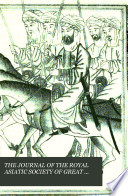 | Royal Asiatic Society of Great Britain and Ireland - Asia - 1841 - 630 pages
...century of our era the Mahawanso expressly calls the PALI THE ROOT OF AH, LANGUAGES. " He [Buddhaghosa] translated, according to the 'grammatical rules of...which is the root of all languages, the whole of the Singalese Atthakatha into Pali. This proved an achievement of the utmost consequence to all languages... | |
 | Royal Asiatic Society of Great Britain and Ireland - Asia - 1841 - 640 pages
...century of our era the Mahawanso expressly calls the PALI THE ROOT OF ALL LANGUAGES. "He [Buddhaghosa] translated, according to the ^grammatical rules of...which is the root of all languages, the whole of the Singalese Atthakatha into Pali. This proved an achievement of the utmost consequence to all languages... | |
 | Sykes (Colonel, William Henry) - India - 1841 - 256 pages
...century of our era the Mahawanso expressly calls the PALI THE ROOT OF ALL LANGUAGES. "He [Buddhaghosa] translated, according to the 'grammatical rules of...which is the root of all languages, the whole of the Singalese Atthakatha into Pali. This proved an achievement of the utmost consequence to all languages... | |
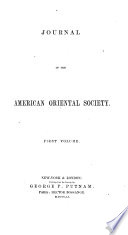 | American Oriental Society - Electronic journals - 1851 - 732 pages
...in the reign of this monarch (Mahanamo.) Taking up his residence in the secluded Ganthakaro wiharo at Anuradhapura, he translated according to the grammatical...which is the root of all languages, the whole of the Singhalese Atthakalha, (into Pali.) This proved an achievement of the utmost consequence to all languages... | |
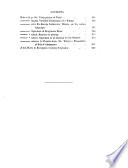 | Vedeha (Thera) - Sinhalese language - 1852 - 560 pages
...together with the Atthaksitha. Taking up his residence in the secluded Ganthakaro wiharo at Anuradapura, he translated according to the grammatical rules of the Magadhas, which is the root of all languages spoken by the human race." — Mahawanso, pp 251-3. Again, supposing that the Pali was the language... | |
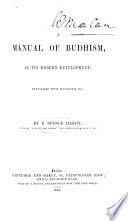 | Robert Spence Hardy - Buddhism - 1853 - 560 pages
...in the secluded Ganthakaro wiharo at Anuradhapura, he translated, according to the grammatical rule of the Magadhas, which is the root of all languages, the whole of the Singhalese Atthakatha (into Pali). This proved an achievement of the utmost importance to all languages... | |
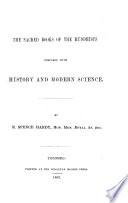 | Robert Spence Hardy - Buddhism - 1863 - 190 pages
...variation... Then taking up his residence in the secluded Ganthakaro wiharo (temple) at Anurddhapura, he translated, according to the grammatical rules...which is the root of all languages, the whole of the Singhalese Attakatha (into Pali). This proved an achievement of the utmost consequence to all the languages... | |
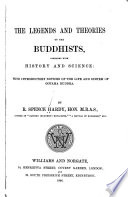 | Robert Spence Hardy - Buddhism - 1866 - 326 pages
...slightest variation. . . . Then taking up his residence in the secluded Ganthakaro wiharo (temple) at Anuradhapura, he translated, according to the grammatical...which is the root of all languages, the whole of the Singhalese Attakatha (into Pali). This proved an achievement of the utmost consequence to all the languages... | |
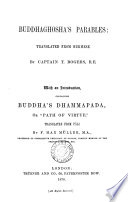 | Buddhaghosa (theologian.) - 1870 - 410 pages
...recorded, together with the ' Atthakatha.' Taking up his residence in the secluded Ganthakara vihara, at Anuradhapura, he translated, according to the grammatical...which is the root of all languages, the whole of the Singhalese Atthakatha (into Pali). This proved an achievement of the utmost consequence to all languages... | |
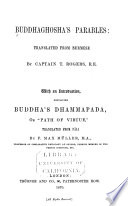 | Buddhaghosa - Tipiṭaka - 1870 - 392 pages
...recorded, together with the ' Atthakatha.' Taking up his residence in the secluded Ganthakara vihara, at Anuradhapura, he translated, according to the grammatical...which is the root of all languages, the whole of the Singhalese Atthakatha (into Pali). This proved an achievement of the utmost consequence to all languages... | |
| |